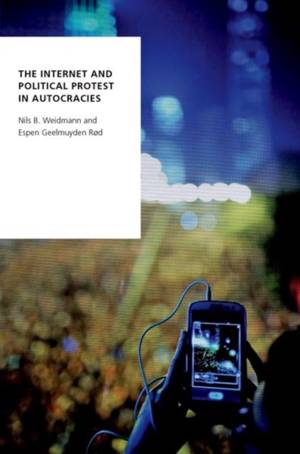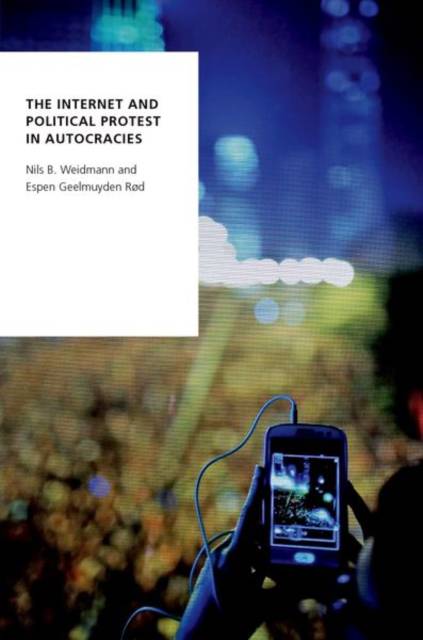
- Afhalen na 1 uur in een winkel met voorraad
- Gratis thuislevering in België vanaf € 30
- Ruim aanbod met 7 miljoen producten
- Afhalen na 1 uur in een winkel met voorraad
- Gratis thuislevering in België vanaf € 30
- Ruim aanbod met 7 miljoen producten
Zoeken
€ 139,45
+ 278 punten
Omschrijving
Eight years after the Arab Spring there is still much debate over the link between Internet technology and protest against authoritarian regimes. While the debate has advanced beyond the simple question of whether the Internet is a tool of liberation or one of surveillance and propaganda, theory and empirical data attesting to the circumstances under which technology benefits autocratic governments versus opposition activists is scarce. In this book, Nils B. Weidmann and Espen Geelmuyden Rød offer a broad theory about why and when digital technology is used for one end or another, drawing on detailed empirical analyses of the relationship between the use of Internet technology and protest in autocracies. By leveraging new sub-national data on political protest and Internet penetration, they present analyses at the level of cities in more than 60 autocratic countries. The book also introduces a new methodology for estimating Internet use, developed in collaboration with computer
scientists and drawing on large-scale observations of Internet traffic at the local level. Through this data, the authors analyze political protest as a process that unfolds over time and space, where the effect of Internet technology varies at different stages of protest. They show that violent repression and government institutions affect whether Internet technology empowers autocrats or activists, and that the effect of Internet technology on protest varies across different national environments.
scientists and drawing on large-scale observations of Internet traffic at the local level. Through this data, the authors analyze political protest as a process that unfolds over time and space, where the effect of Internet technology varies at different stages of protest. They show that violent repression and government institutions affect whether Internet technology empowers autocrats or activists, and that the effect of Internet technology on protest varies across different national environments.
Specificaties
Betrokkenen
- Auteur(s):
- Uitgeverij:
Inhoud
- Aantal bladzijden:
- 216
- Taal:
- Engels
- Reeks:
Eigenschappen
- Productcode (EAN):
- 9780190918309
- Verschijningsdatum:
- 7/08/2019
- Uitvoering:
- Hardcover
- Formaat:
- Genaaid
- Afmetingen:
- 241 mm x 159 mm
- Gewicht:
- 482 g

Alleen bij Standaard Boekhandel
+ 278 punten op je klantenkaart van Standaard Boekhandel
Beoordelingen
We publiceren alleen reviews die voldoen aan de voorwaarden voor reviews. Bekijk onze voorwaarden voor reviews.











